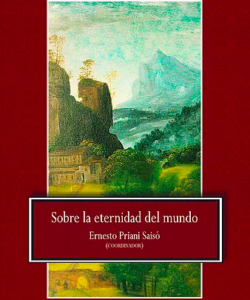Mary Shelley tuvo un sueño antes de escribir Frankenstein. Luego de escuchar a las charlas que su padre esposo (gracias, Lydia), Percy Bysshe Shelley, tenía con su amigo Lord Byron sobre el origen de la vida, una noche tuvo una pesadilla que no era sino la imagen borrosa, un apunte, de lo que sería en realidad su mayor obra. La descripción del sueño aparece en la introducción a la segunda edición de la obra, que se ha considerado una explicación cultural de la creación de Frankenstein, que contrasta con el prefacio de la primera edición, breve y directo para dar entrada a la narración. No es extraño que ella atribuya a un sueño el germen de la idea de la obra. Era muy propio de la época pensar que había sueños verdaderos, que anticipaban de alguna forma el futuro, porque revelaban al soñante una verdad superior y eran a menudo confundidos con visiones. De hecho, lo que el sueño le ofrece a Mary Shelley es una gran visión horrorosa de lo que una tecnología poderosa era capaz de producir: la vuelta a la vida de un cadaver y la forma en que esta criatura se vuelve contra su creador. 
A continuación la transcripción del sueño en su versión original tomado del sitio Romantic Circles
Many and long were the conversations between Lord Byron and Shelley, to which I was a devout but nearly silent listener. During one of these, various philosophical doctrines were discussed, and among others the nature of the principle of life, and whether there was any probability of its ever being discovered and communicated. They talked of the experiments of Dr. Darwin, (I speak not of what the Doctor really did, or said that he did, but, as more to my purpose, of what was then spoken of as having been done by him,) who preserved a piece of vermicelli in a glass case, till by some extraordinary means it began to move with voluntary motion. Not thus, after all, would life be given. Perhaps a corpse would be re-animated; galvanism had given token of such things: perhaps the component parts of a creature might be manufactured, brought together, and endued with vital warmth.
Night waned upon this talk, and even the witching hour had gone by, before we retired to rest. When I placed my head on my pillow, I did not sleep, nor could I be said to think. My imagination, unbidden, possessed and guided me, gifting the successive images that arose in my mind with a vividness far beyond the usual bounds of reverie. I saw—with shut eyes, but acute mental vision, —I saw the pale student of unhallowed arts kneeling beside the thing he had put together. I saw the hideous phantasm of a man stretched out, and then, on the working of some powerful engine, show signs of life, and stir with an uneasy, half vital motion. Frightful must it be; for supremely frightful would be the effect of any human endeavour to mock the stupendous mechanism of the Creator of the world. His success would terrify the artist; he would rush away from his odious handywork, horror-stricken. He would hope that, left to itself, the slight spark of life which he had communicated would fade; that this thing, which had received such imperfect animation, would subside into dead matter; and he might sleep in the belief that the silence of the grave would quench for ever the transient existence of the hideous corpse which he had looked upon as the cradle of life. He sleeps; but he is awakened; he opens his eyes; behold the horrid thing stands at his bedside, opening his curtains, and looking on him with yellow, watery, but speculative eyes.
I opened mine in terror. The idea so possessed my mind, that a thrill of fear ran through me, and I wished to exchange the ghastly image of my fancy for the realities around. I see them still; the very room, the dark parquet, the closed shutters, with the moonlight struggling through, and the sense I had that the glassy lake and white high Alps were beyond. I could not so easily get rid of my hideous phantom; still it haunted me. I must try to think of something else. I recurred to my ghost story, my tiresome unlucky ghost story! O! if I could only contrive one which would frighten my reader as I myself had been frightened that night!
Swift as light and as cheering was the idea that broke in upon me. “I have found it! What terrified me will terrify others; and I need only describe the spectre which had haunted my midnight pillow.” On the morrow I announced that I had thought of a story. I began that day with the words, It was on a dreary night of November , making only a transcript of the grim terrors of my waking dream.

Percy Shelley era su esposo, no su padre.
Gracias Lydia!